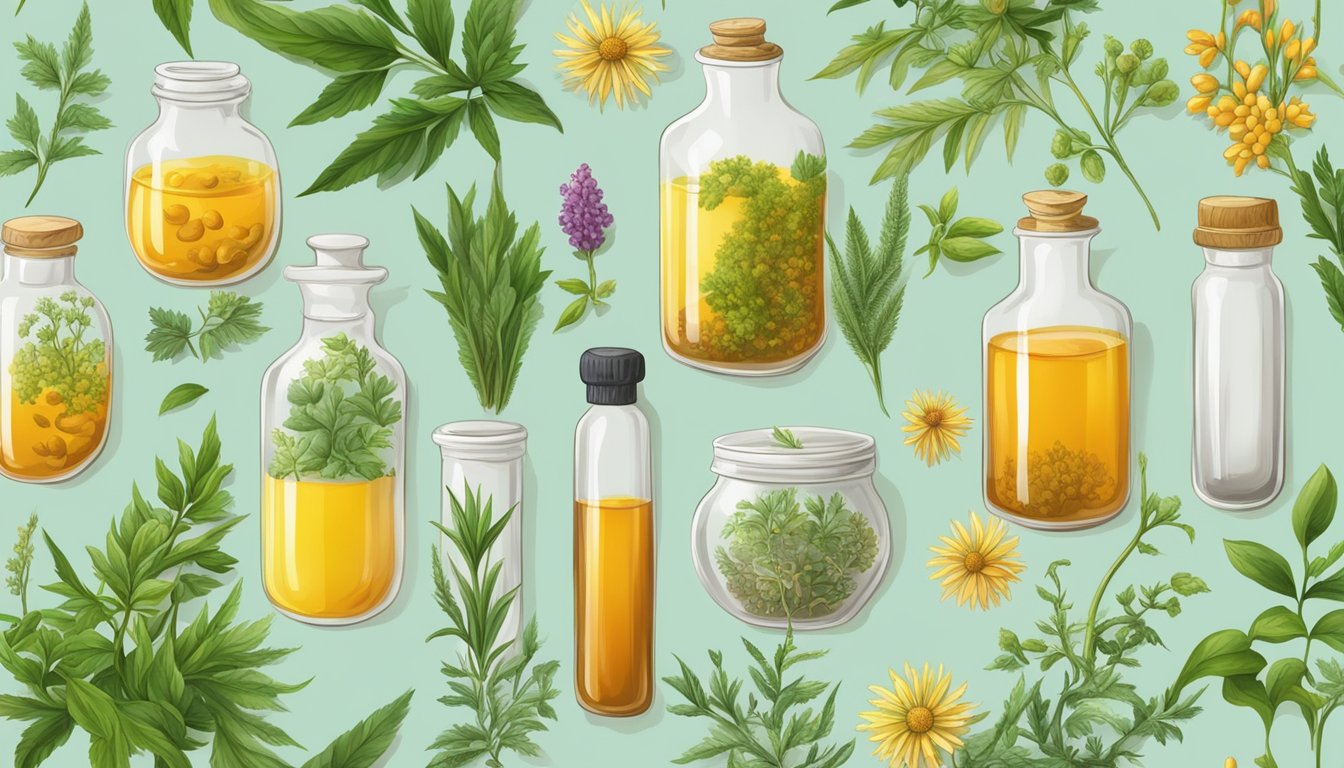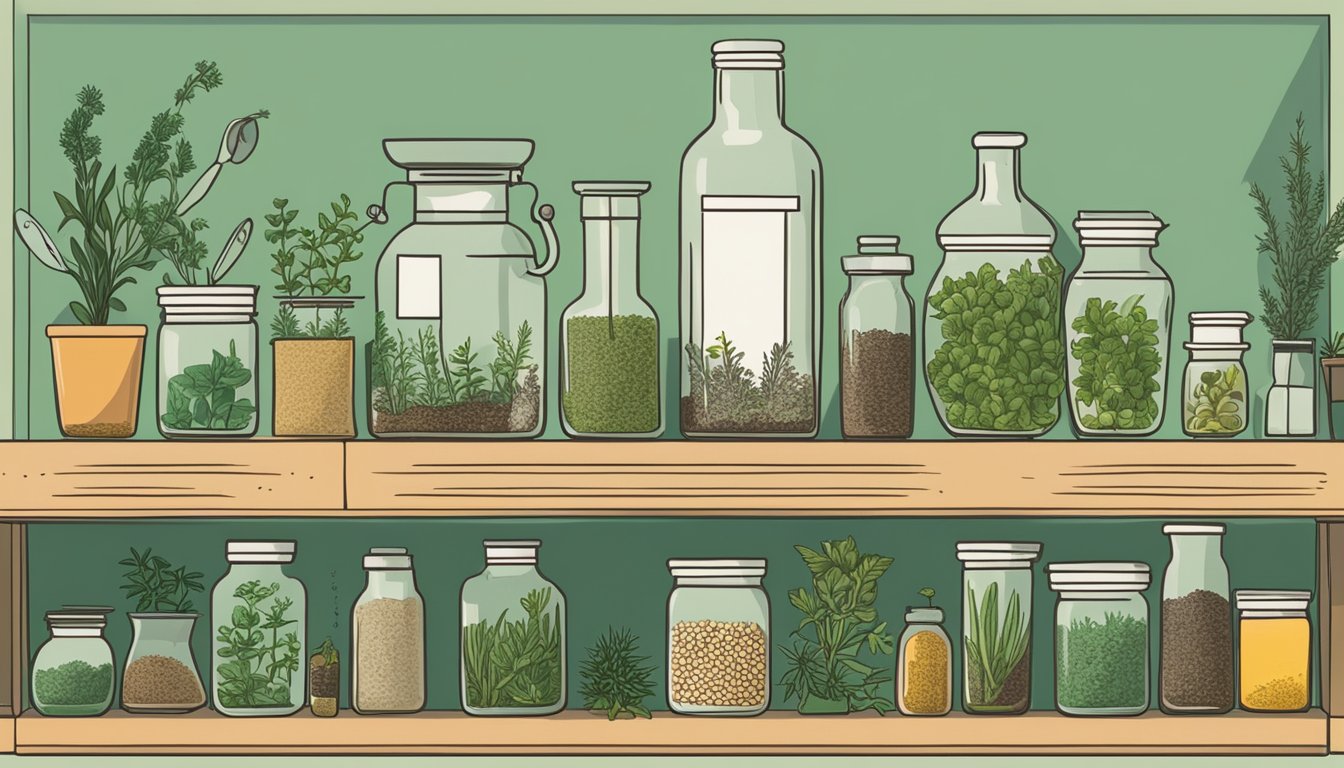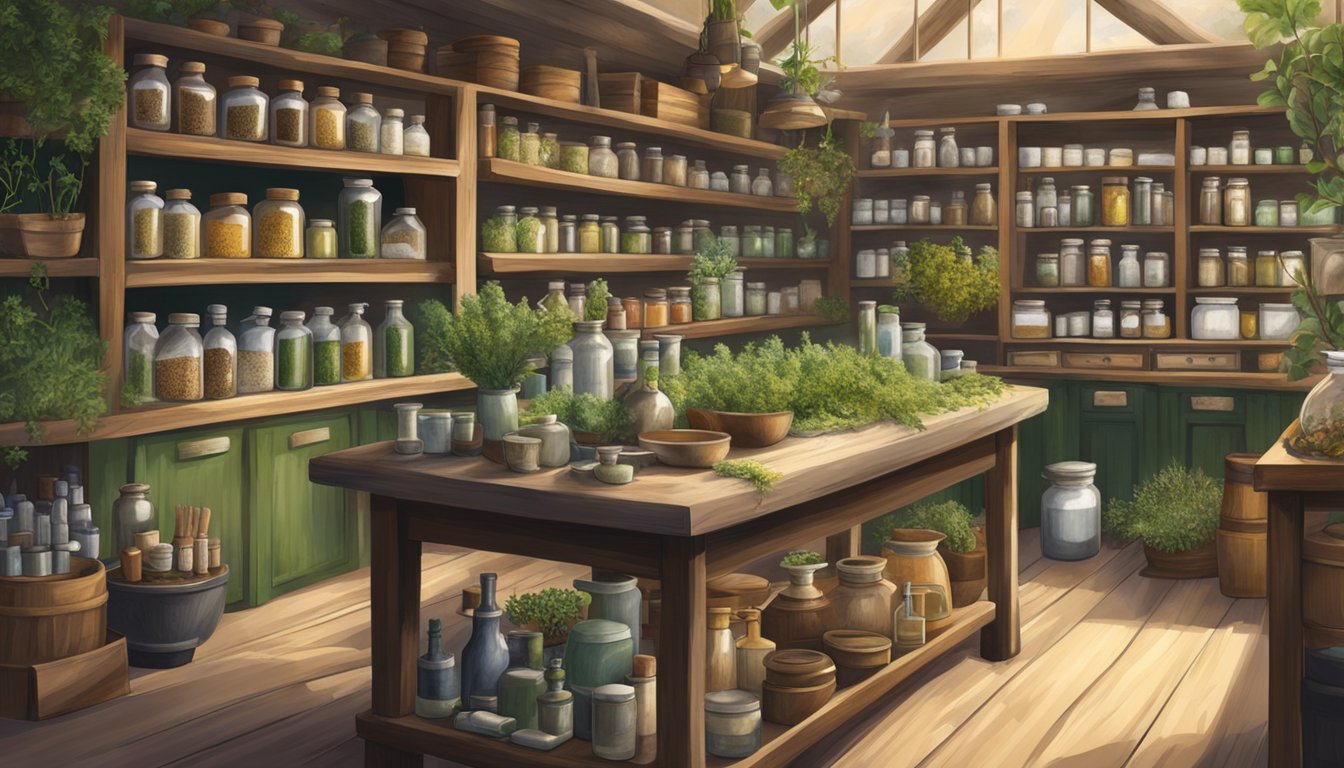Herbal remedies vs modern medicine – both have been used for centuries to treat various illnesses and ailments. While modern medicine has revolutionized healthcare, herbal remedies are still widely used globally. The debate between herbal remedies and modern medicine has been ongoing for years, with proponents on both sides arguing for their effectiveness. Let’s dive into this fascinating topic!
Herbal medicine, also known as traditional or alternative medicine, is the use of plants, herbs, and natural remedies to treat illnesses. This practice has been around for thousands of years and is still widely used in many cultures. Herbal remedies are often seen as a safer alternative to modern medicine, as they are made from natural ingredients and have fewer side effects.
On the other hand, modern medicine is the use of pharmaceutical drugs and medical procedures to treat illnesses. Modern medicine has made significant advancements in the treatment of diseases and has saved countless lives. However, modern medicine is also known for its side effects and high costs. While modern medicine is effective in treating many illnesses, it is also associated with a host of negative side effects.
What Are Herbal Remedies?
Definition
Herbal remedies are natural products made from various parts of plants, including leaves, stems, roots, flowers, and seeds. These products are used for medicinal purposes and are considered a type of natural medicine. Herbal therapy is a form of alternative medicine that has been used for centuries to treat a wide range of health conditions.
History and Cultural Significance – Herbal Remedies vs Modern Medicine
The use of plants as medicines dates back to ancient times, and many traditional healing practices, such as Ayurveda and Unani, include the use of herbal remedies. Traditional Chinese Medicine (TCM) also uses herbal medicines extensively, and the World Health Organization (WHO) recognizes the importance of traditional medicine, including herbal remedies, in many cultures.
Herbal remedies have been used for centuries to treat a wide range of conditions, including digestive problems, respiratory infections, skin conditions, and more. In many cultures, herbal remedies are an integral part of daily life, and are often used in combination with other natural products, such as dietary supplements, extracts, and teas.
Types of Herbal Remedies
There are many different types of herbal remedies, including capsules, teas, tinctures, and more. Some of the most common herbal remedies include:
- Echinacea: This herb is often used to boost the immune system and prevent colds and flu.
- St. John’s Wort: This herb is commonly used to treat depression and anxiety.
- Ginger: This herb is often used to treat nausea and vomiting.
- Ginkgo Biloba: This herb is used to improve memory and cognitive function.
- Valerian: This herb is commonly used to treat insomnia and anxiety.
Overall, herbal remedies are a natural and often effective alternative to modern medicine, and can be a valuable addition to any health regimen.
What Is Modern Medicine? Herbal Remedies vs Modern Medicine

Definition – Herbal Remedies vs Modern Medicine
Modern medicine is a term used to describe the conventional medical practices that are based on scientific evidence and are used to diagnose, prevent, and treat diseases. It is the type of medicine that is practiced by medical professionals who have received formal education and training in medical schools and are licensed by the relevant authorities. The Food and Drug Administration (FDA) regulates the safety, efficacy, and quality of modern medicine in the United States.
Development and Advancements
Modern medicine has come a long way since its inception. It has evolved from the use of herbal remedies and folk medicine to the use of evidence-based practices that are supported by clinical trials and research. The development and advancements in modern medicine have led to the discovery of new treatments and cures for various diseases, as well as the improvement of existing ones.
Types of Modern Medicine – Herbal Remedies vs Modern Medicine
Modern medicine can be divided into several categories, including pharmaceutical drugs, synthetic drugs, surgery, and radiation therapy. Pharmaceutical drugs are prescription drugs that are used to treat specific diseases or conditions. Synthetic drugs are chemically synthesized compounds that are used as medications. Surgery is a medical procedure that involves cutting into the body to repair or remove damaged or diseased tissues. Radiation therapy is a type of cancer treatment that uses high-energy radiation to kill cancer cells.
Modern medicine has become an integral part of healthcare systems around the world. It has led to the globalization of medical practices and has made it possible for people to receive quality healthcare regardless of their location. However, it is important to note that modern medicine is not without its drawbacks. Pharmaceutical drugs can have side effects and can interact with other medications, and surgery and radiation therapy can be invasive and have risks associated with them. Therefore, it is important to consult with a medical professional before taking any medication or undergoing any medical procedure.
Comparison Between Herbal Remedies Vs Modern Medicine

Effectiveness
When it comes to effectiveness, both herbal remedies vs modern medicine have their advantages and disadvantages. Herbal remedies are often considered to be more natural and gentle on the body, but they may not be as effective as modern medicine for certain health conditions. On the other hand, pharmaceutical drugs are often more potent and can provide faster relief, but they may also come with more side effects.
Studies have shown that some herbal supplements and natural remedies can be effective in treating certain health conditions. For example, St. John’s Wort has been shown to be effective in treating mild to moderate depression, while ginger has been shown to be effective in reducing nausea and vomiting. However, it’s important to note that not all herbal remedies are backed by clinical trials or case studies, and their efficacy may vary depending on the individual.
Safety – Herbal Remedies vs Modern Medicine
Safety is another important factor to consider when comparing herbal remedies vs modern medicine. Herbal remedies are often considered to be safer and have fewer side effects than pharmaceutical drugs, but they can still be toxic or cause adverse reactions if not used properly. It’s important to note that herbal remedies can also interact with other medications and cause allergic reactions.
Pharmaceutical drugs, on the other hand, are often more regulated and tested for safety and efficacy. However, they can also come with more side effects and be more toxic than herbal remedies. It’s important to weigh the risks and benefits of both herbal remedies vs modern medicine before making a decision.
Accessibility
Accessibility is another factor to consider when comparing herbal remedies vs modern medicine. Herbal remedies are often available over-the-counter and don’t require a prescription, making them more accessible to people without health insurance or limited access to healthcare. However, it’s important to note that not all herbal remedies are regulated or standardized, and their quality may vary.
Pharmaceutical drugs, on the other hand, often require a prescription and may not be as accessible to people without health insurance or limited access to healthcare. However, they are often more regulated and standardized, ensuring consistent quality.
Cultural Beliefs – Herbal Remedies vs Modern Medicine
Cultural beliefs and belief systems can also play a role in the choice between herbal remedies vs modern medicine. Herbal remedies have been used for centuries in traditional medicine and are often deeply rooted in cultural beliefs and practices. Some people may prefer to use herbal remedies because of their cultural significance or belief in their natural healing properties.
Pharmaceutical drugs, on the other hand, are often seen as more modern and scientific, and may be preferred by people who value evidence-based medicine. It’s important to respect cultural beliefs and practices when discussing the choice between herbal remedies vs modern medicine.
Which Is Better: Herbal Remedies or Modern Medicine?

As a healthcare professional, I am often asked whether herbal remedies or modern medicine is better. The answer is not straightforward, as both approaches have their own advantages and disadvantages. In this section, I will explore the pros and cons of each approach and provide some insights on how to integrate them.
Case Studies and Research
One advantage of modern medicine is that it is backed by a large body of research and clinical trials. This means that healthcare decisions are based on scientific evidence, which is peer-reviewed and follows medical guidelines. On the other hand, herbal remedies have been used for centuries, and there is some evidence to support their effectiveness. However, the quality of research studies on herbal remedies is often poor, and there is a lack of scientific evidence to support their use.
Integrating Both Approaches – Herbal Remedies vs Modern Medicine
A growing trend in healthcare is the integration of complementary medicine with modern medicine. This approach is known as integrative health, and it involves using a combination of therapeutic strategies to treat patients. For example, a patient may receive modern medicine for a specific condition, while also using herbal remedies to manage their symptoms. This approach can provide a more holistic therapy, which takes into account the emotional, mental, and spiritual aspects of a patient’s health.
The Importance of Evidence-Based Medicine
While herbal remedies have been used for centuries, it is important to remember that not all natural products are safe or effective. This is why evidence-based practice is crucial in healthcare. Evidence-based medicine involves using the best available scientific evidence to make clinical decisions. This means that healthcare professionals should be cautious when recommending herbal remedies, and should only do so when there is scientific evidence to support their use.
Both herbal remedies vs modern medicine have their own advantages and disadvantages. As healthcare professionals, it is important to be knowledgeable about both approaches and to use evidence-based practice when making clinical decisions. Integrating both approaches can provide a more holistic therapy, which takes into account the emotional, mental, and spiritual aspects of a patient’s health.
Before You Go – Herbal Remedies vs Modern Medicine

The debate between herbal remedies vs modern medicine is complex and multifaceted. While herbal remedies have been used for thousands of years, modern medicine has made significant advances in treating and curing diseases.
Continuing research in both areas is essential to ensure that patients receive the best possible care. Healthcare policy should reflect the need for both herbal remedies vs modern medicine to be available to patients.
Looking to the future, it is important to recognize that there is still much to be learned about the potential benefits and risks of herbal remedies. As more research is conducted, we may discover new uses for these remedies and new ways to combine them with modern medicine to provide better healthcare outcomes for patients.
Overall, it is important to approach the debate between herbal remedies vs modern medicine with an open mind and a commitment to evidence-based practice. By working together, we can ensure that patients receive the best possible care and that healthcare providers have access to the tools and knowledge they need to make informed decisions about patient care.
Herbal Remedies vs Modern Medicine: A Connection with TheHerbProf.com
Herbal Remedies and Modern Medicine, two different paths to wellness! Now, let’s see how they link to TheHerbProf.com.
Herbal Remedies are all about the power of nature. They’re like the whispering wind, carrying the secrets of the earth. Now, mix this with the herbal wisdom of TheHerbProf.com, and you’ve got a wellness wonderland!
Modern Medicine, on the other hand, is about the marvels of science. It’s like the bright beacon of a lighthouse, guiding us through the storm. When you pair this with the insights from TheHerbProf.com, it’s like having a health compass in your pocket!
For example, love the soothing power of chamomile in Herbal Remedies? Hop over to TheHerbProf.com to learn more about its calming properties. It’s like a wellness journey, and you’re the explorer!
Or maybe you’re intrigued by the precision of Modern Medicine? Swing by TheHerbProf.com to discover the science behind it. It’s like a journey into the heart of healing, and you’re the adventurer!
In essence, Herbal Remedies, Modern Medicine, and TheHerbProf.com are like three ingredients in a perfect wellness routine. One brings the power of nature, one brings the marvels of science, and one brings the knowledge. Together, they create a harmonious blend for any wellness enthusiast!
References – Herbal Remedies vs Modern Medicine
Little Herb Encyclopedia, by Jack Ritchason; N.D., Woodland Publishing Incorporated, 1995
The Ultimate Healing System, Course Manual, Copyright 1985, Don Lepore
Planetary Herbology, Michael Tierra, C.A., N.D., Lotus Press, 1988
Handbook of Medicinal Herbs, by James A. Duke, Pub. CRP Second Edition 2007
The Complete Medicinal Herbal, by Penelope Ody, Published by Dorling Kindersley
Check the Following Articles!
Herbal Blessings Reviews: Unbiased Product Evaluations
Simply Herb Shake Review: Check Our Mega Guide!
Why Herbal Tea Is Good For You?
Frequently Asked Questions – Herbal Remedies vs Modern Medicine

What are the key differences between herbal and modern medicines?
The key difference between herbal and modern medicines is the source of the active ingredients. Herbal medicines are derived from plants, while modern medicines are synthesized in a laboratory. Herbal remedies often contain a mixture of compounds that work together to produce a therapeutic effect, while modern medicines typically contain a single active ingredient that has been purified and standardized.
Can herbal remedies be as effective as modern pharmaceuticals for certain conditions?
Yes, herbal remedies can be as effective as modern pharmaceuticals for certain conditions. For example, St. John’s Wort has been shown to be as effective as prescription antidepressants in treating mild to moderate depression. However, it’s important to note that not all herbal remedies are effective, and some may even be harmful.
What are the advantages of modern medicine compared to traditional herbal treatments?
Modern medicine has several advantages over traditional herbal treatments. First, modern medicines are often more effective and reliable than herbal remedies. Second, modern medicines are usually more convenient to use and have a longer shelf life. Finally, modern medicines are subject to rigorous testing and regulation, which ensures their safety and efficacy.
How do the safety profiles of herbal remedies compare with those of synthetic drugs?
The safety profiles of herbal remedies and synthetic drugs can vary widely. Some herbal remedies may be relatively safe when used as directed, while others may be toxic or interact with other medications. Similarly, some synthetic drugs may have few side effects, while others may be associated with serious adverse events. It’s important to consult with a healthcare provider before using any herbal remedies or synthetic drugs.
In what ways do traditional medicine practices inform modern medical treatments?
Traditional medicine practices have informed modern medical treatments in several ways. For example, many modern drugs were originally derived from plants used in traditional medicine. In addition, traditional medicine practices have contributed to the development of alternative and complementary therapies, such as acupuncture and herbal medicine.
Why might some individuals prefer herbal remedies over conventional medical therapies?
Some individuals may prefer herbal remedies over conventional medical therapies for a variety of reasons. For example, they may believe that herbal remedies are more natural and less likely to cause side effects. Others may prefer herbal remedies because they are more affordable or readily available. However, it’s important to note that herbal remedies are not always safe or effective, and should be used with caution.

